Media library
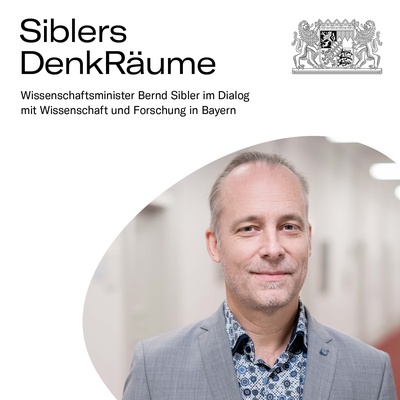
Erschienen am 16.12.2021
Prof. Dr. Laforsch in dialogue with Science Minister Sibler
Topic: Plastic - hazardous substance or problem solver?
The new podcast episode of "Siblers DenkRäumen" is online!
Prof. Dr. Christian Laforsch, spokesperson of the SFB Microplastics, is with us.
How did Christian Laforsch get involved with the research topic of microplastics? What are the dangers of microplastics for our health? What would he wish for if he had 3 wishes? What can we do as consumers? The result is an exciting and entertaining podcast! Have fun listening!
Click here for the podcast (german).
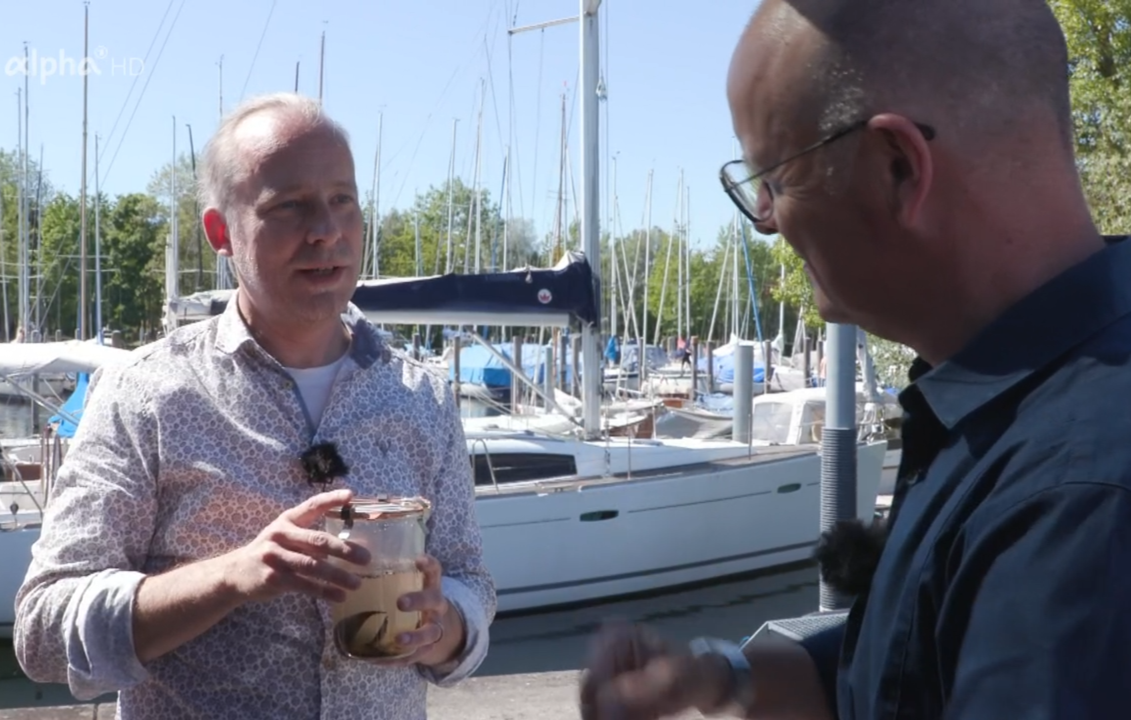
Erschienen am 04.11.2021 - © ARD Alpha
ARD Alpha: Schwanke meets Science
Karsten Schwanke brings cutting-edge research in Germany to life. Plastic - or more precisely microplastics - is becoming an ever greater problem for our nature. The particles are so small that they are barely visible to the naked eye - and they are everywhere: in the air, in the rain, in the water and on the earth. Microplastics are created when we wash our clothes, when we drive our cars, when we cut them with a knife. With Christian Laforsch, he explores the question of how dangerous microplastics are for organisms.
Click here for the full version of the video (german).
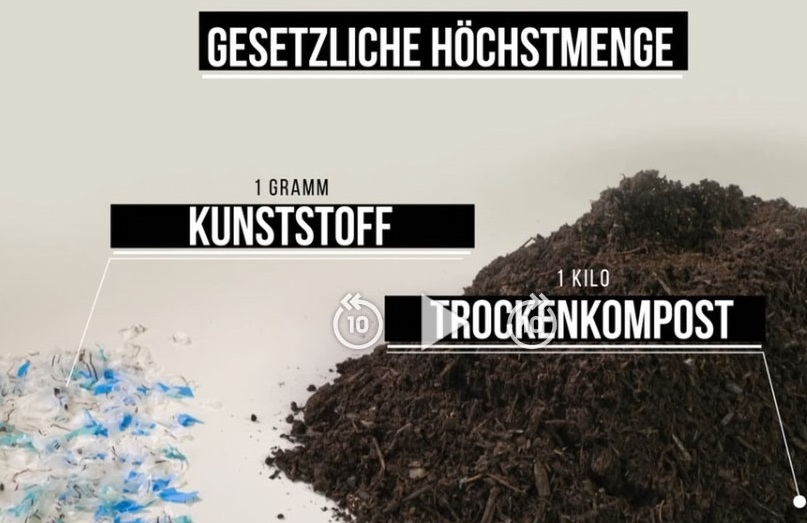
Erschienen am 01.10.2021 - © 3sat NANO
3Sat Nano: Compost and lots of plastic
Click here for the full version of the video (german).
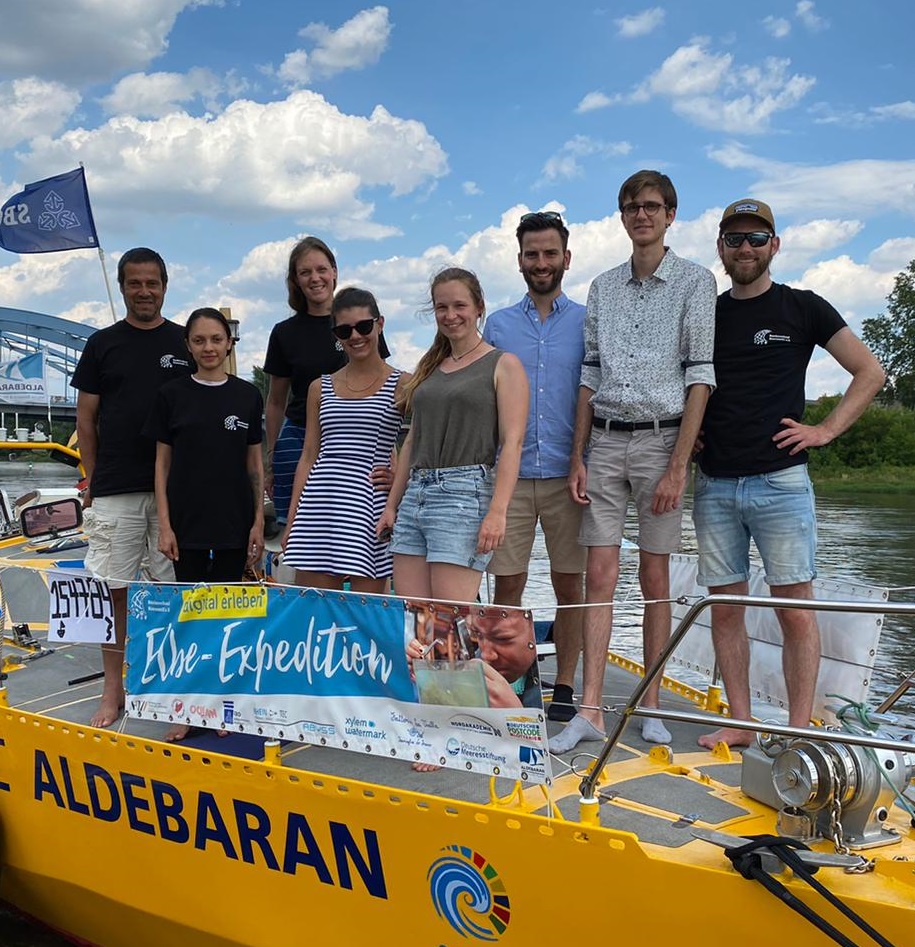
Erschienen am 30.09.2021 - © Aldebaran
ALDEBARAN Hamburg: Elbe Expedition 2021 Day 10
On day 10, four PhD students from the CRC Microplastics visited the Aldebaran Crew at the Elbe Expedition 2021 to talk about their research. Using exhibits, they show, among other things, the decomposition time of plastic. Matthias Völkl is investigating the effects and behaviour of microplastics at the cellular level. Simon Wieland is researching the cellular interaction of microplastics and is investigating whether microplastic particles can bind to e.g. immune cells. What ultimately leads to their uptake into the cell, and thus into the organism? Nora Meides and Teresa Menzel are working on the formation and degradation of secondary microplastics under simulated environmental influences.
Click here for the full version of the video (german).
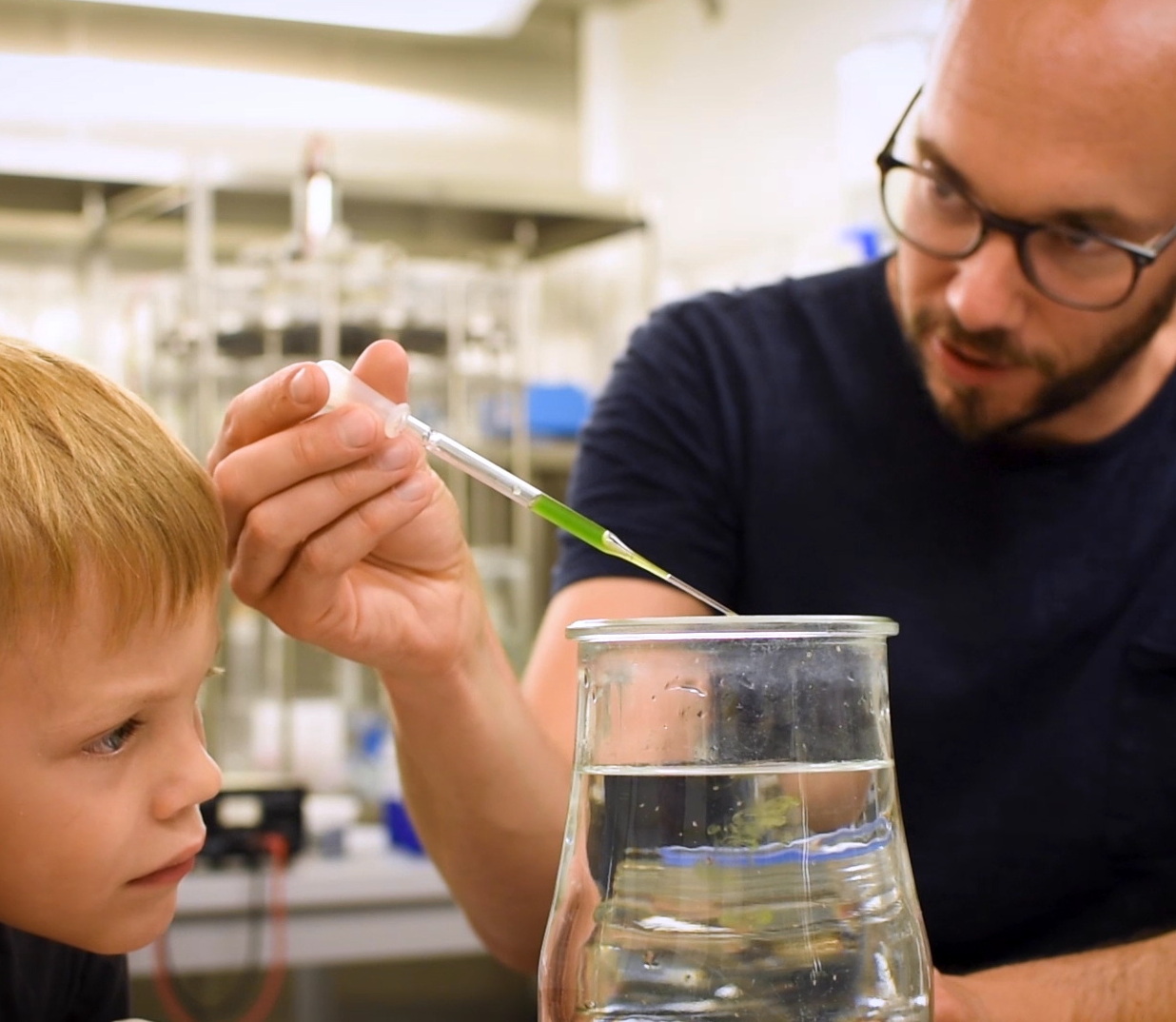
Erschienen am 06.09.2021 - © UBT
WDR: Türen auf 2021 mit der Maus Tag "Mikroplastik Forschung"
Trailer for the "Türen auf mit der Maus Tag 2021". On Sunday 3rd October 2021, the Collaborative Research Centre for Microplastics, together with the team from the Ecological Botanical Garden, has prepared exciting actions for preschoolers and primary schoolers. The video gives some insight into what to expect at the "Türen auf 2021" at the University of Bayreuth. (In German)
Click here for the full version of the video (german).
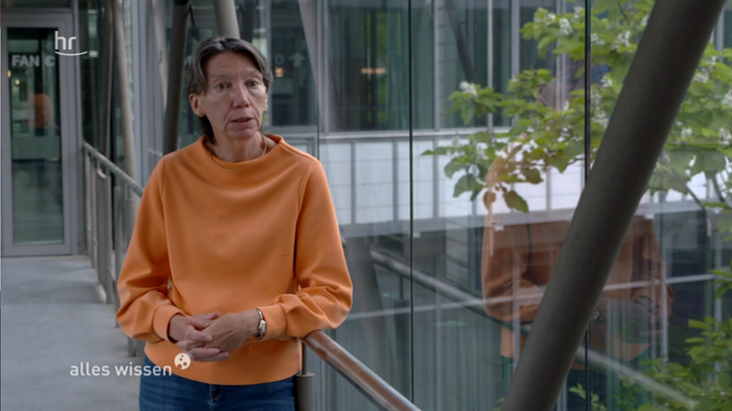
Erschienen am 02.09.2021 - © hr
hr: alles wissen
The magazine "alles wissen" was about compostable packaging, innovative recycling, hazardous plasticisers and microplastics in aquatic exosystems. From the Collaborative Research Centre 1357 Microplastics you will find contributions from Ruth Freitag, Martin Löder, Julian Brehm and Christian Laforsch. (In German)
Click here for the full version of the video.
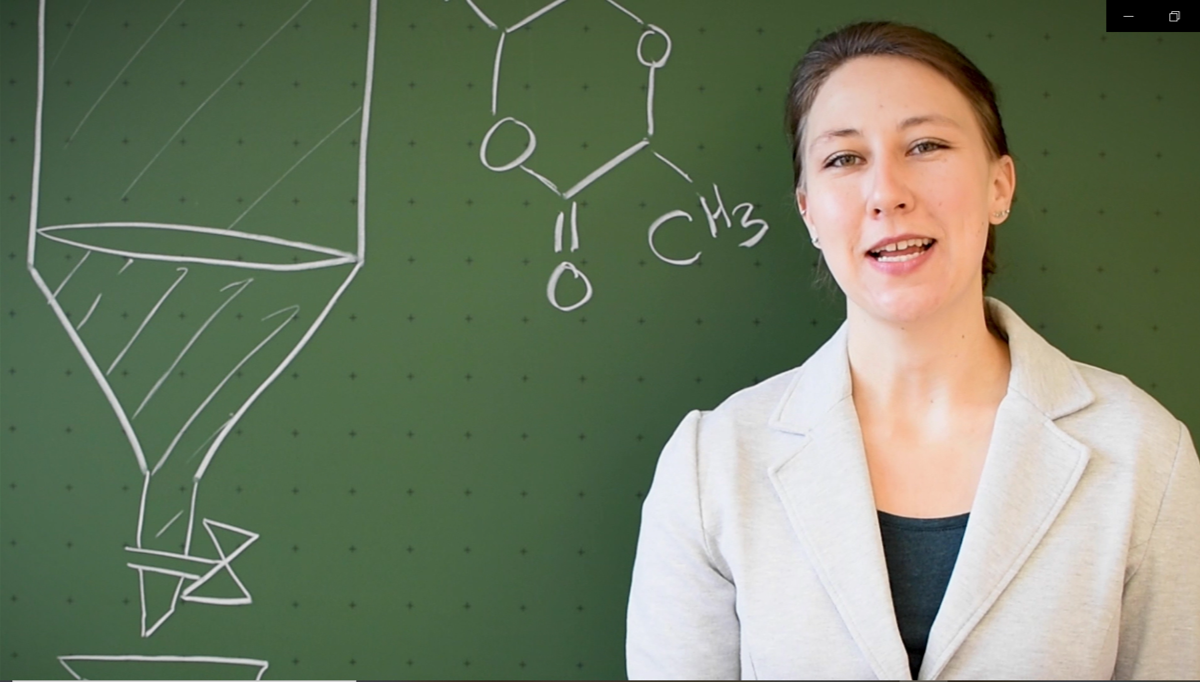
Erschienen am 09.07.2021
MiKoBo: Method development, sample processing and analytics
Julia Möller, PhD student at the Chair of Animal Ecology I, is working in the MiKoBo joint project. She wants to know how microplastics are introduced into arable soils through composts and fermentation residues. In this video she gives an insight into the individual work steps until microplastics can be analytically determined from field samples. Her methods and results are also important and valuable for the work of SFB 1357.
Click here for the full version of the videoon des Videos.
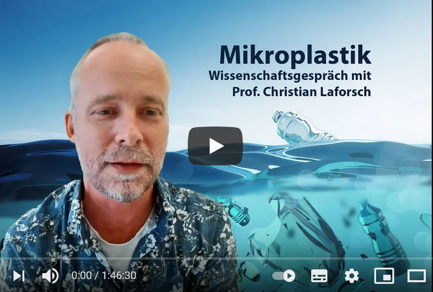
Erschienen am 10.06.2021
11th Science Talk: "Where does it come from? Where is it in? Is it making us sick? And how do we get rid of it?"
As part of the 11th Science Talks of the "Berchtesgadener Land Schülerforschungszentrum", young people and anyone else interested had the opportunity to get in touch with Christian Laforsch via Zoom and ask their questions about microplastics. The conversation and discussion was moderated by Dr. Stefan Lebernegg. A great format to bring students and scientists in touch! (In German)
Click here for the full version of the video.
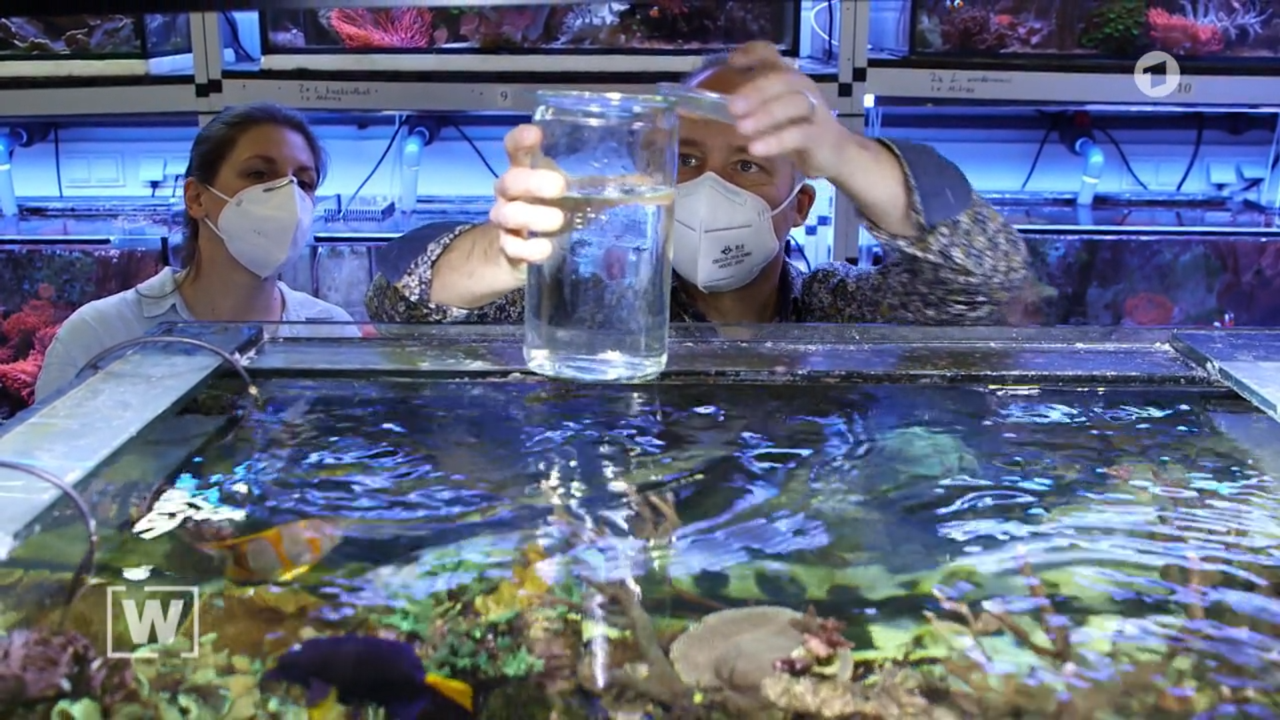
Erschienen am 20.02.2021 - © ARD
ARD: W wie Wissen "How dangerous are microplastics?"
W wie Wissen is reporting about plastic waste in the kitchen, 30 years of the yellow bag, recycling and bioplastics. Sabine Frühbuss and her camera team visited Anja Ramsperger in the laboratory and interviewed Christian Laforsch about the current state of research in the field of microplastics. The video explains the recent Science Advances study and the observed effect of the eco-corona. (In German)
Click here for the full version of the video.
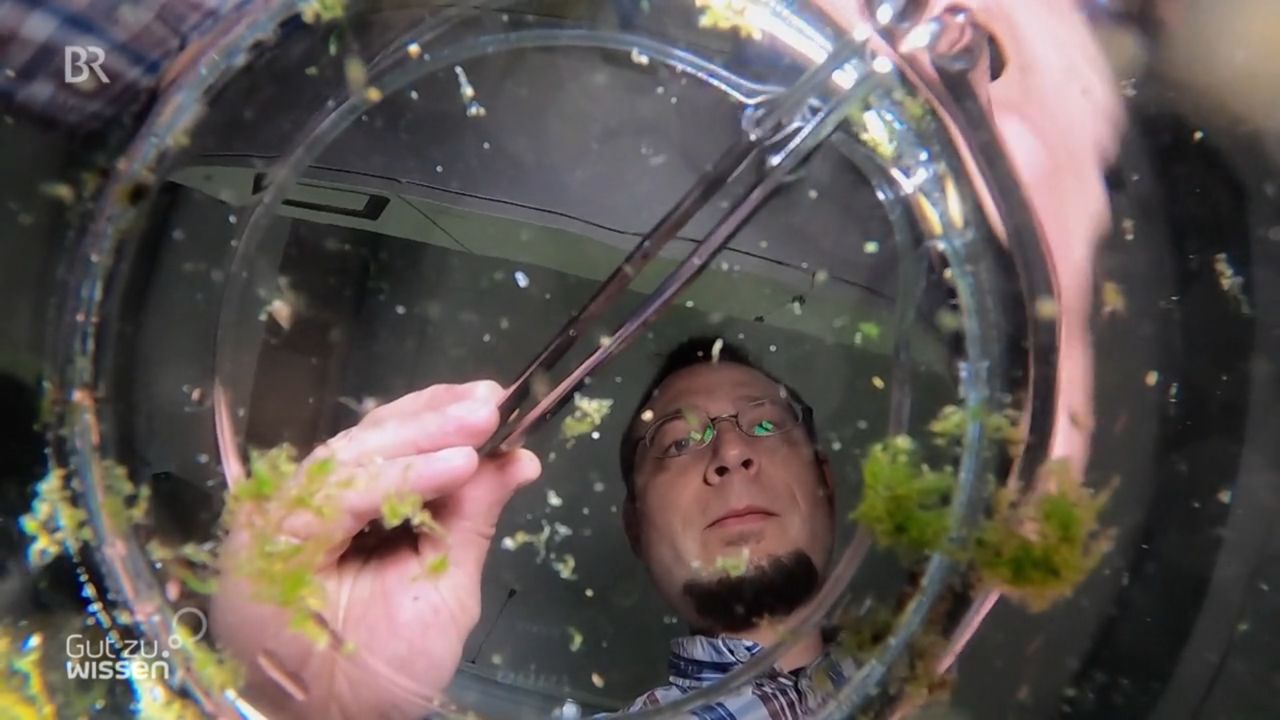
Erschienen am 16.01.2021 - © BR
BR: Gut zu Wissen "Was Mikroplastik in Gewässern bewirkt"
A very worthwhile contribution on the topic of microplastics. The report by Jan Kerckhoff and his team did a great job of dealing with the complex issue of microplastics and also made clear what research is still needed! Martin Löder shows field sampling in the "Roter Main". Christian Laforsch and Julian Brehm discuss how mussels behave when microplastics in the water becomes a stress factor. (Video is in German)
Click here for the full version of the video.
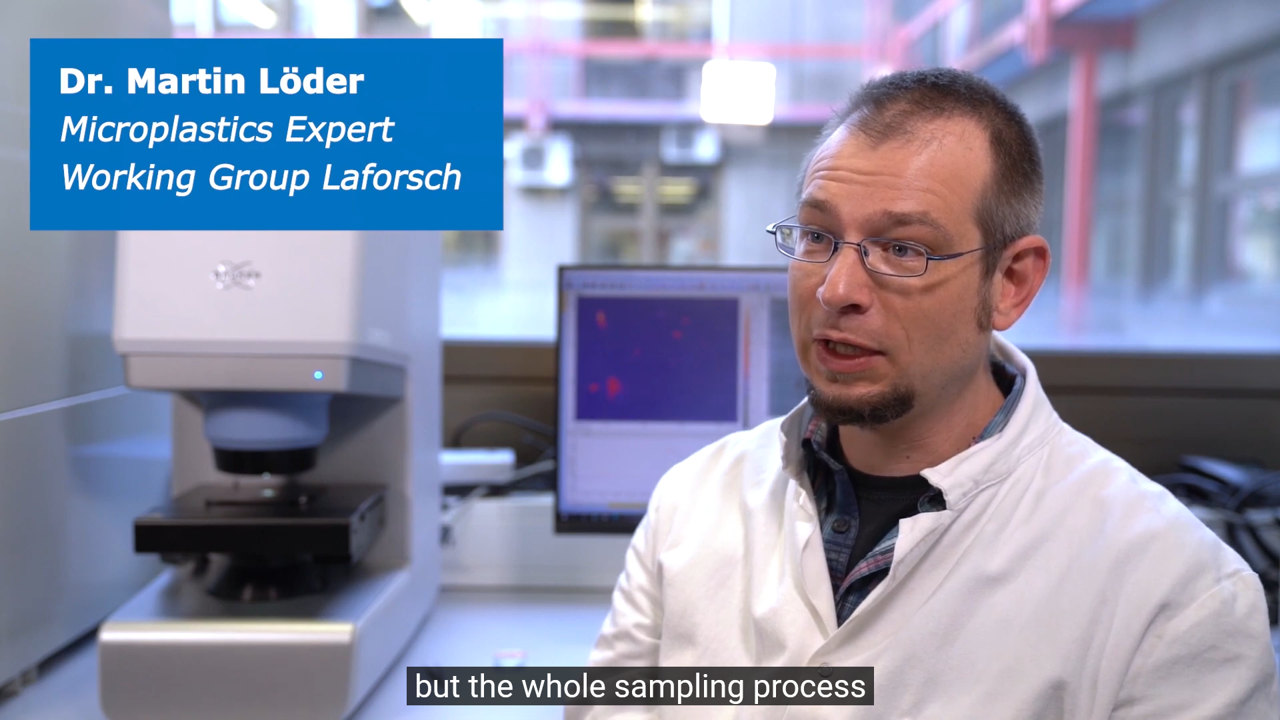
Erschienen am 10.12.2020
Bruker: Meeting Microplastic Experts | FT-IR Microscopy | Microplastics Analysis
The Bruker team Simon Schlindwein and Eric Klein visited us, the Collaborative Research Center Microplastics, at the end of the test phase of the FT-IR LUMOS II. They interviewed our microplastics experts Martin Löder and Julia Möller about the challenges in microplastics analytics.
Click here for the full version of the video.
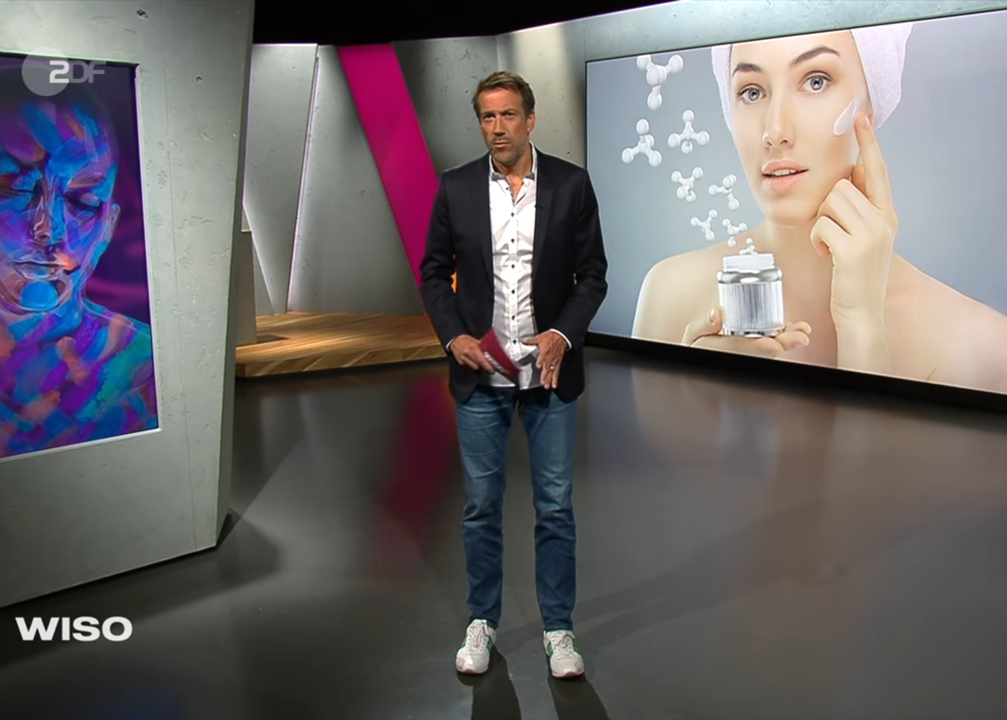
Erschienen am 21.09.2020 - © ZDF
ZDF: WISO "Mikroplastik in Kosmetik"
In Kosmetikprodukten können Mikroplastikpartikel aus z.B. Polyethylene (PE) zum Einsatz kommen. Für die Formulierung von Cremes dienen diese Mikropartikel z.B. zur Viskositätskontrolle um die Verbraucherwünsche hinsichtlich Konsistenz und "Cremegefühl" zurfriedenzustellen. Das diese Partikel in die Umwelt gelangen ist sicher. Welche Folgen dadurch zu erwarten sind ist leider nicht so eindeutig zu beantworten wie in der Sendung dargestellt. Welche Auswirkungen diese auf Organismen, Böden und Gewässer habe - daran forscht der SFB 1357 Mikroplastik.
Hier geht es zur Vollversion des Videos.
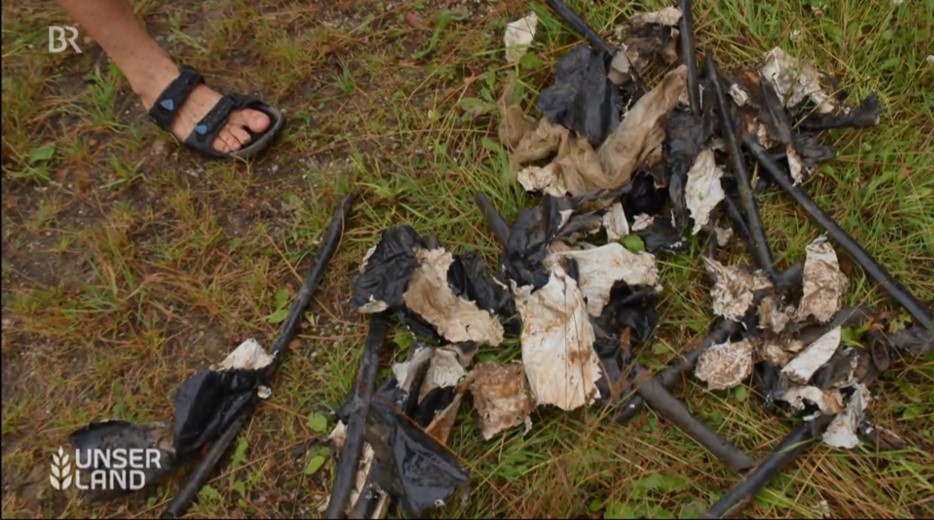
Erschienen am 31.07.2020 - © BR
BR: Unser Land "Asparagus films: How dangerous are film residues in the field?"
Plastic debris of agricultural mulch- and cover foils as well as used and broken irrigation pipes in nature cause trouble between Regensburg and Straubing. Anita Bach's contribution in the program "Unser Land" broadcasted by Bayerischer Rundfunk draws attention to very careless handling of plastic waste in the environment. It also forwards the wish of the citizens to introduce legal regulations to protect the environment. (Video is in German)
Click here for the full version of the video.
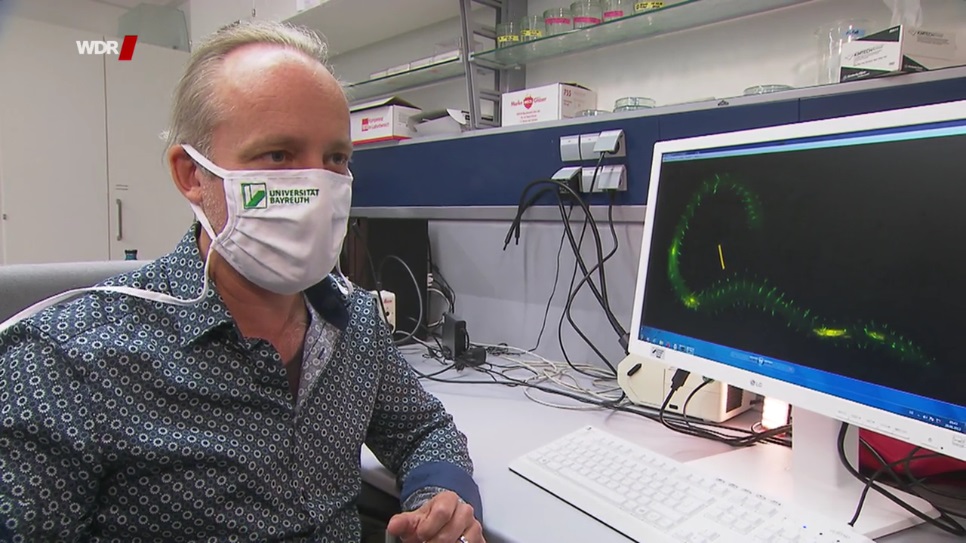
Erschienen am 08.07.2020 - © WDR
WDR: Markt "Plastics in the field"
Herbert Kordes and the film team of the WDR have brought a soil sample from a field to the University of Bayreuth. Christian Laforsch, Martin Löder and Julia Möller analyzed the soil sample regarding macro- and microplastics. An exciting tv contribution that shows that far more microplastics can be found in soils than previously thought. (Video is in German)
Click here for the full version of the video.

Erschienen am 17.06.2020 - © BR
BR Podcast RADIOWISSEN: Microplastics - A hopeless fight.
Microplastics are tiny and everywhere: wind and water cause the small parts to spread quickly and can reach even the most remote places on earth. The long-term effects have hardly been researched so far. In this podcast Christian Laforsch talks with Claudia Steiner about this topic.
Click here for the Podcast (in German).
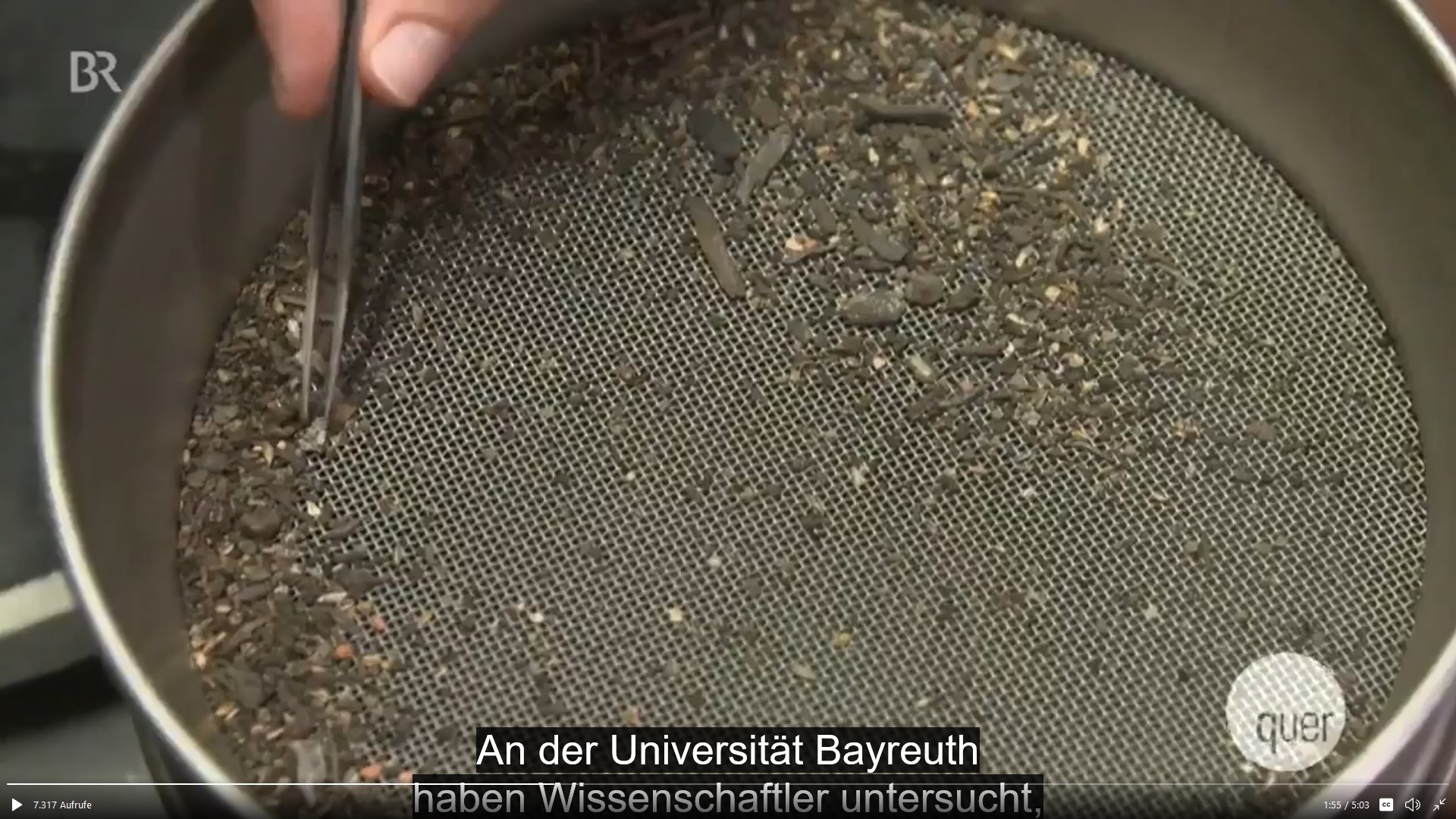
Erschienen am 04.06.2020 - © BR
Bayerischer Rundfunk: quer mit Christoph Süß
For the contribution "Sauerei auf dem Feld" (mess in the field) for the program quer with Christoph Süß the film team of the Bayerischer Rundfunk filmed in the animal ecology of the University of Bayreuth how microplastics are isolated and analyzed from soil samples. (Video is in German).
Click here for the full version of the video.
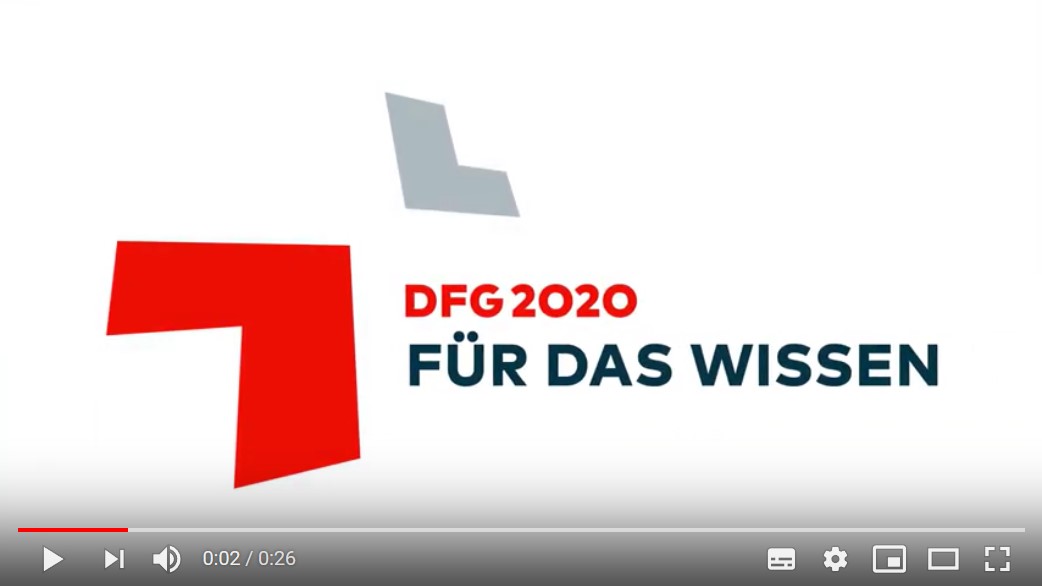
Erschienen am 05.03.2020 - © DFG
DFG bewegt: #fürdasWissen
Christian Laforsch also made a statement on behalf of the DFG and explained what #fürdasWissen means to him. Visit www.dfg2020.de for more statements and information about DFG2020.
Click here for the full version of the video.
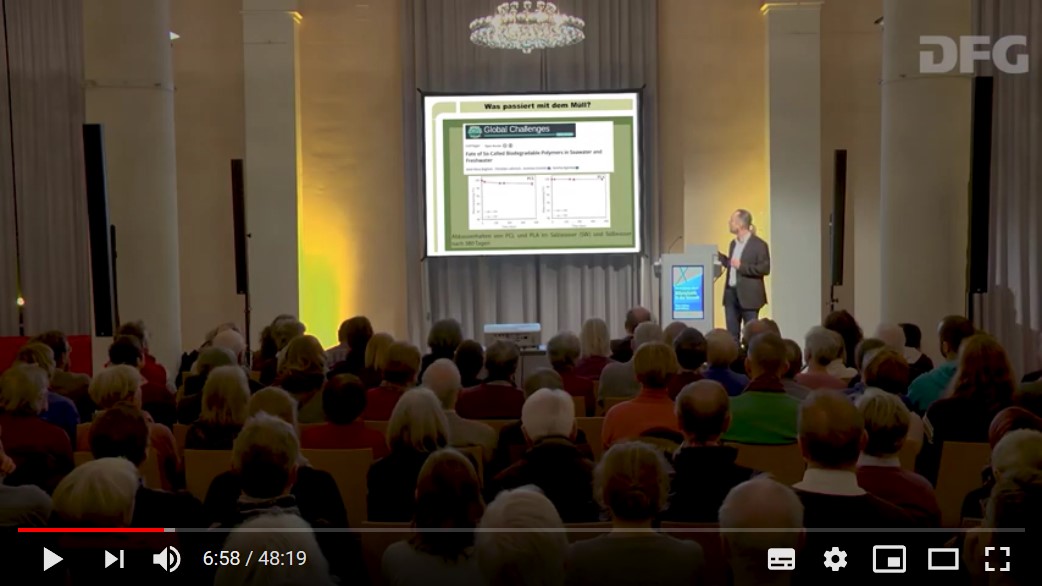
Erschienen am 03.03.2020. - © DFG
DFG-Exkurs: Microplastics in the environment, Munich
On 12 February 2020 Christian Laforsch took part in the DFG event "Exkurs - Insights into the world of science of the German Research Foundation (DFG)". In the state library of his home town Munich, he talked about "microplastics in the environment - small particles, big impact". (English subtitles on YouTube available).
Click here for the full version of the video.
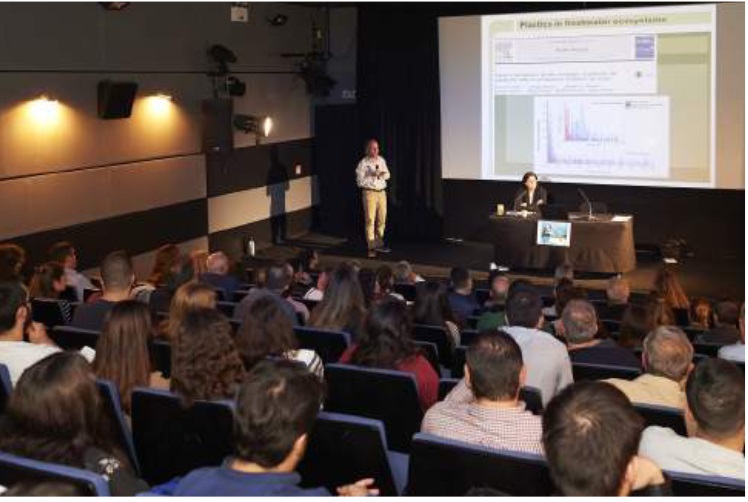
Erschienen am 08.11.2019 - © DAAD
DAAD research marketing event, Athens, Greece
Together with the Hellenic Open University (HOU) in Athens, the DAAD organized a joint event on the subject of microplastics and thus provided an insight into Germany as a research location. Also some great advertising for the research location Bayreuth. Those who couldn’t attend can watch the event on YouTube.
Click here for the full version of the video.
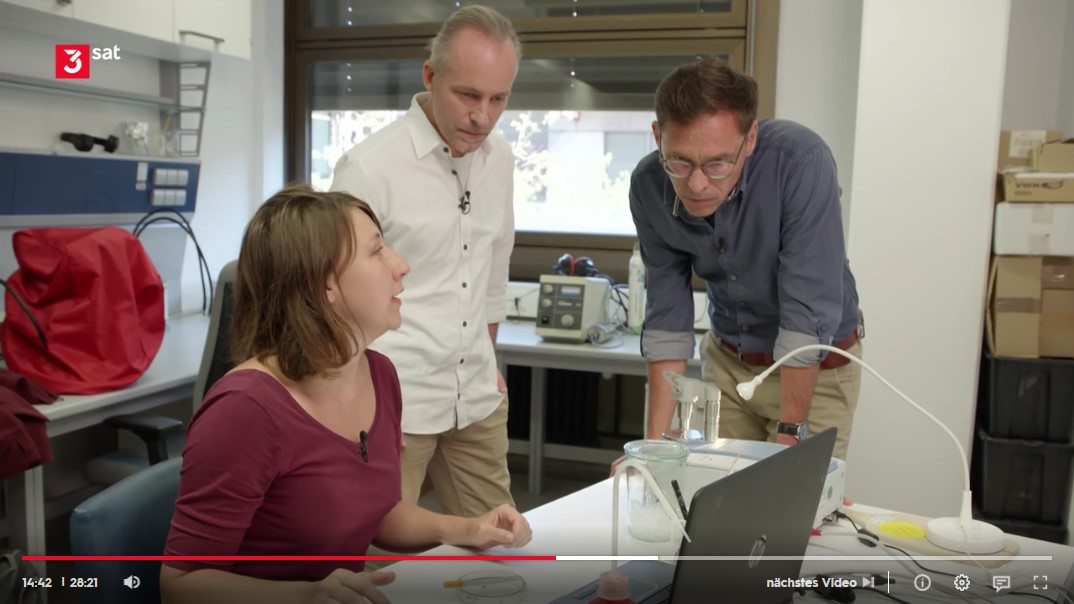
Erschienen am 24.10.2019. - © 3sat
3sat nano spezial: German Environmental Award 2019
Soil research for climate protection and plastic recycling for cleaning agents - this year's German Environmental Award 2019 of the DBU goes to a scientist and an entrepreneur. The award winners are presented in this video. As connecting theme 3sat visited the animal ecology of the University of Bayreuth and filmed how Julia Möller and Christian Laforsch are isolating and analyzing microplastics from soil samples. (Video is in German)
Click here for the full version of the video.
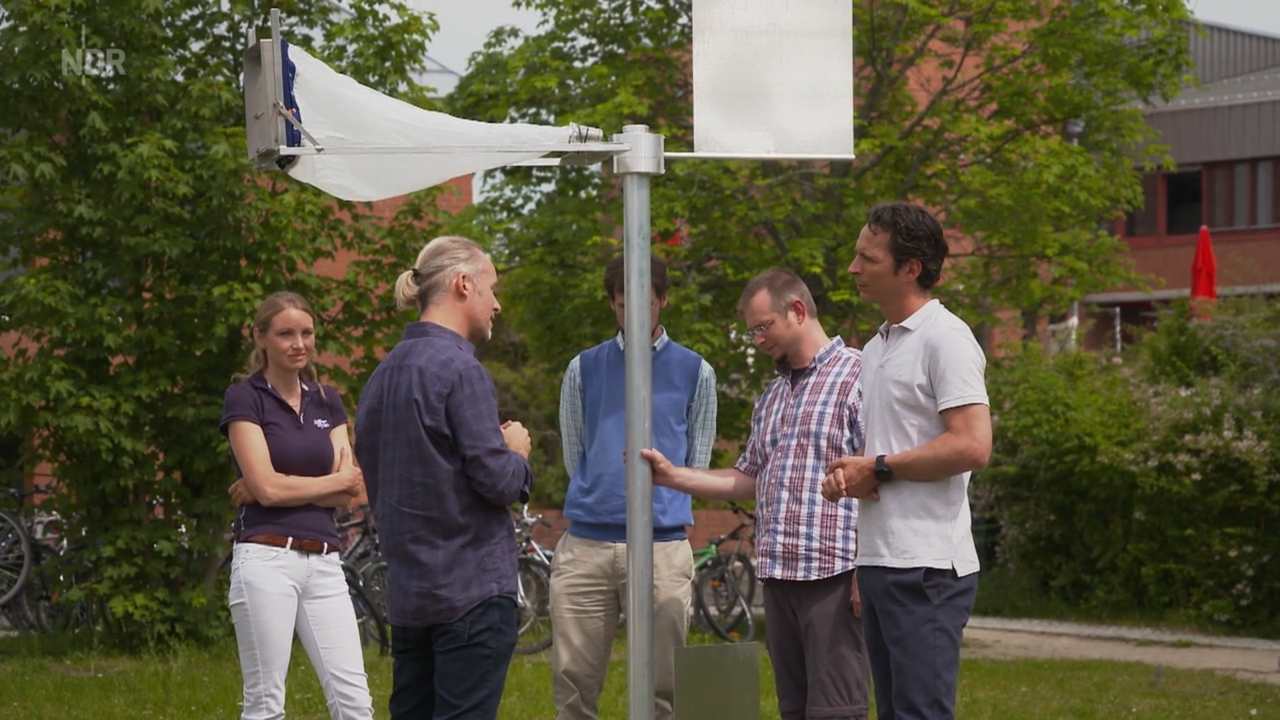
Erschienen am 19.08.2019 - © NDR
NDR: Tricks of the plastic industry
The amount of plastic we are surrounded by becomes particularly clear when we go shopping. The goods in supermarkets are mostly packed in plastic, which is supposed to keep the food fresh and clean. 4.5 million packages were produced in Germany alone in 2018. With far-reaching consequences for people and the environment, as market presenter Jo Hiller and author Sara Rainer show.
Click here for the full version of the video.
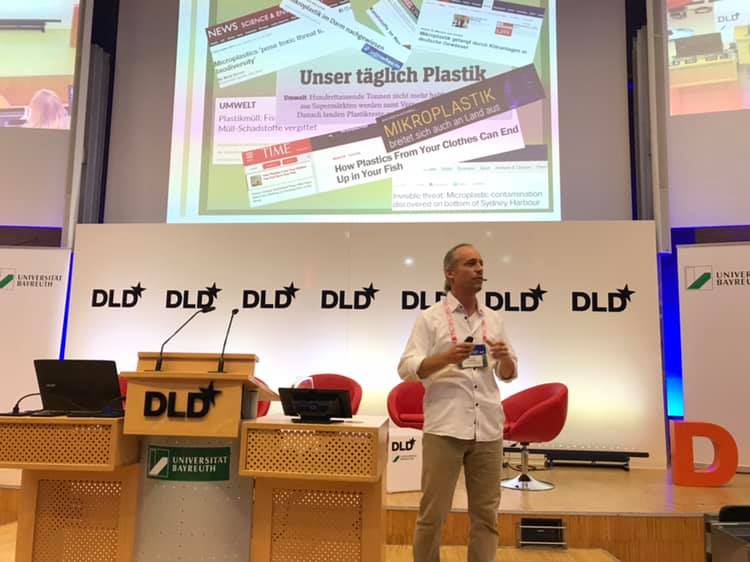
Erschienen am 01.07.2019. - © UBT
DLD Campus 2019: Plastics - from a problem solver to a problem
Apart from climate change, hardly any other topic in recent months has moved us as much as plastic waste in the world's oceans and the detection of microplastics in local waters and our food chain. Christian Laforsch's research is interested in the formation and effects of microplastics. At the DLD Campus 2019, he gives insights into his current work and presents approaches to solve this environmental problem. (English subtitles on YouTube available)
Click here for the full version of the video.
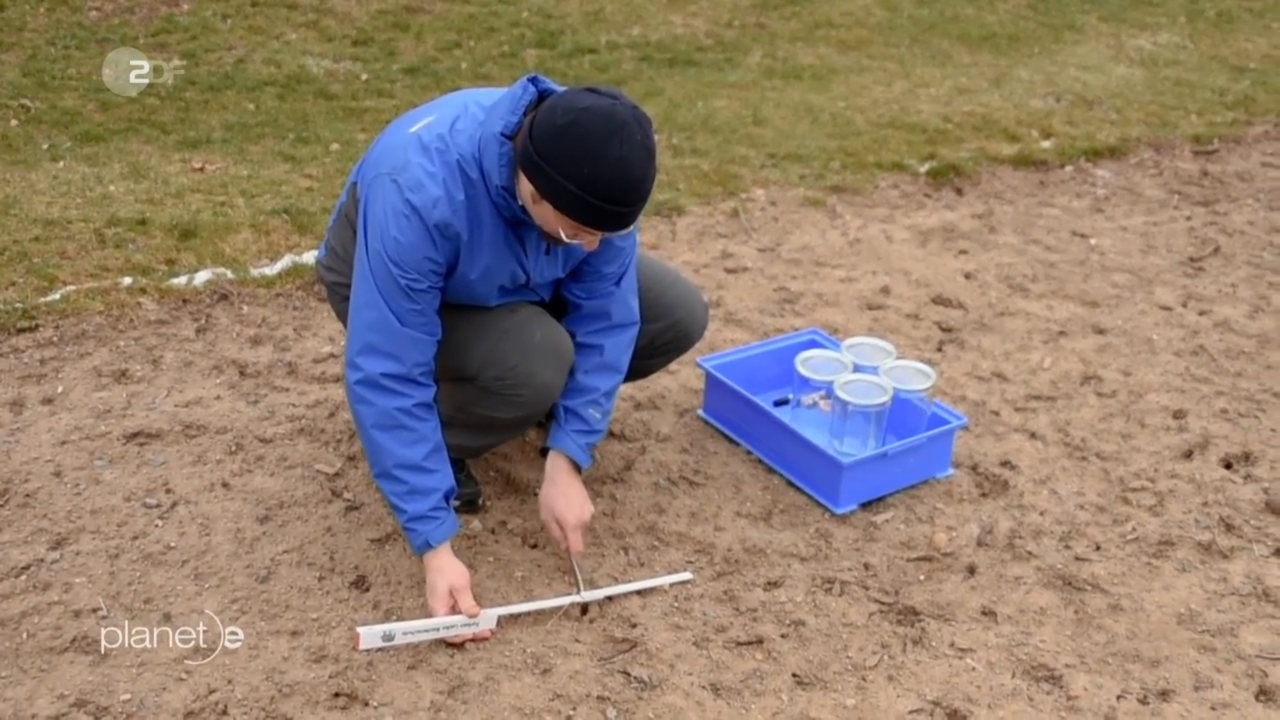
Erschienen 24.03.2019 - © ZDF
ZDF Planet e: Vermüllt und verseucht - Böden in Gefahr
Plastic waste is a worldwide problem and the demand for plastics is increasing more and more. What happens to plastic waste? How dangerous is it for our environment and health? (In German)
Click here for the full version of the video.
Podcast MDR aktuell - know: Plastic renders water fleas defenceless
When plastic enters nature and is eaten by animals, it can have devastating effects. Scientists have now discovered that plastic does not even have to be eaten to cause damage.
MDR AKTUELL Wed 17.04.2019 10:43PM 01:58 min
Click here for the full version of the audio
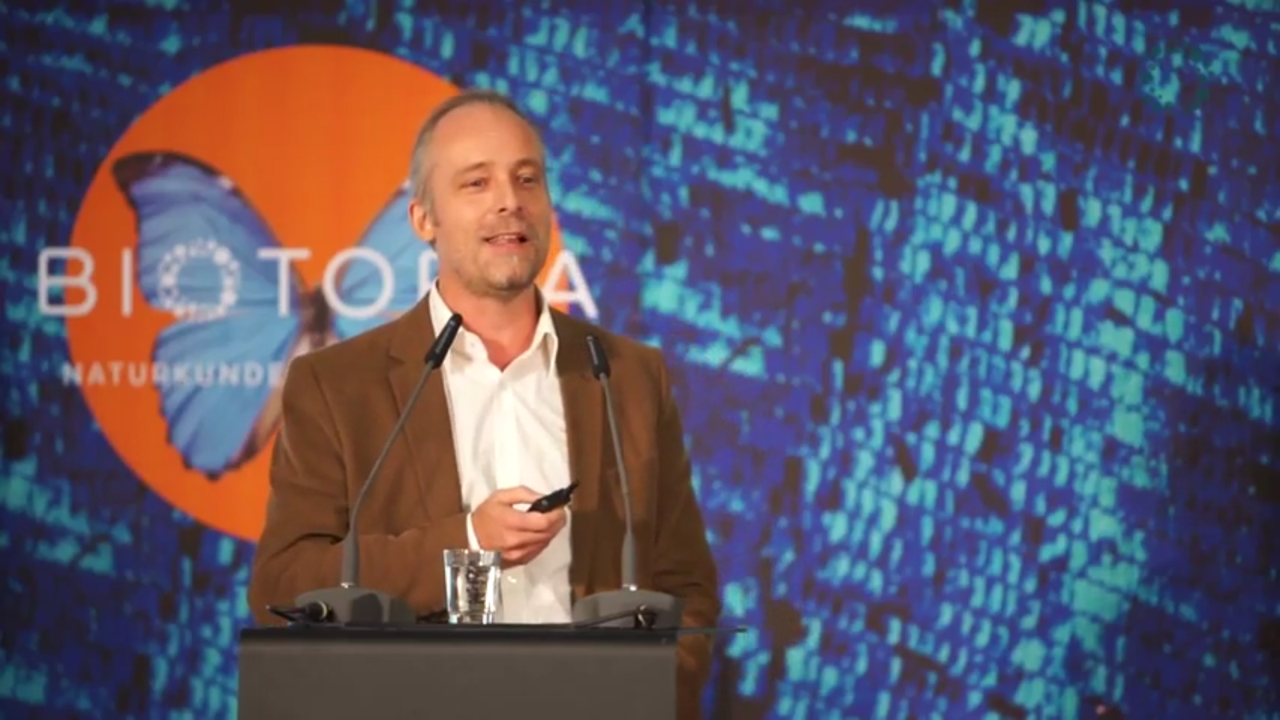
Erschienen am 23.07.2018 - © Biotopia
Biotopia: Plastics - From problem solver to problem
Plastic: blessing or curse? Prof. Dr. Christian Laforsch from the Department of Animal Ecology at the University of Bayreuth speaks at the Biotopia Hautnah-Fest about the burning issue of plastic disposal and what consequences plastic waste can have on our environment. (In German)
Click here for the full version of the video.
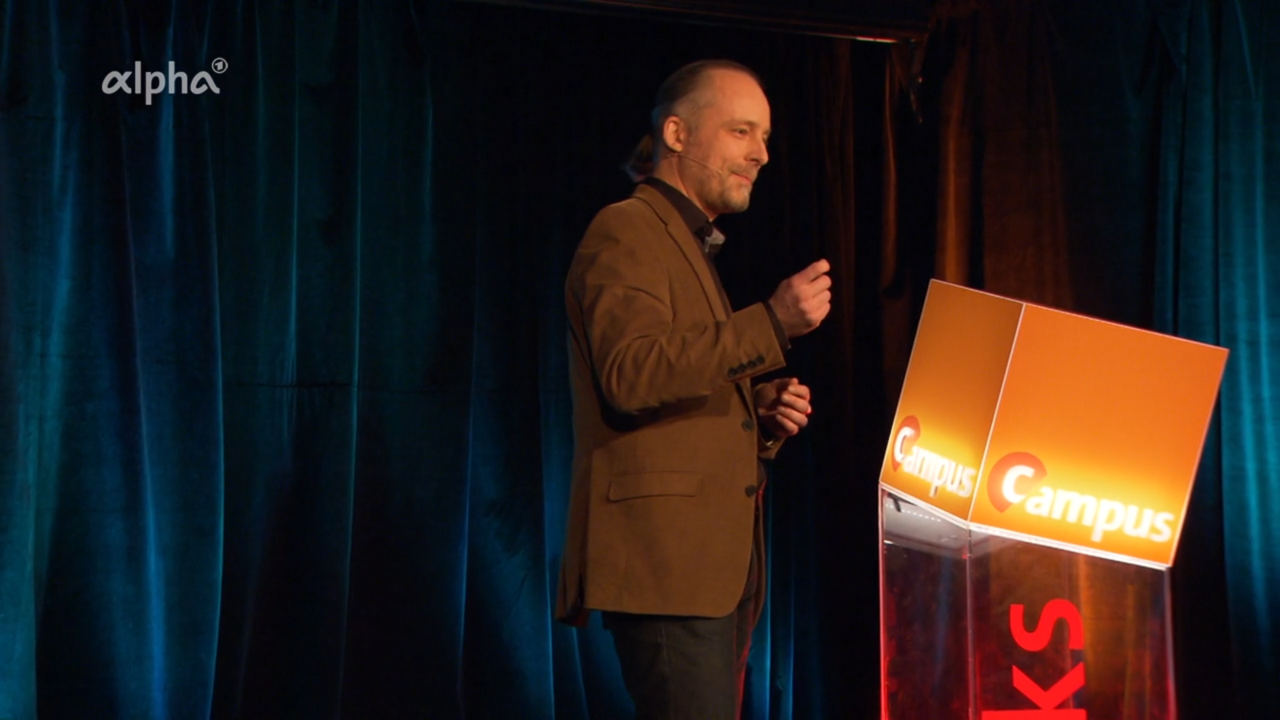
Erschienen am 26.05.2018
ARD Alpha Campus Talks: Does plastic waste make us ill?
Plastic waste is a worldwide problem and the demand for plastics is increasing more and more. What happens to plastic waste? How dangerous is it for our environment and health? (In German)
Click here for the full version of the video.
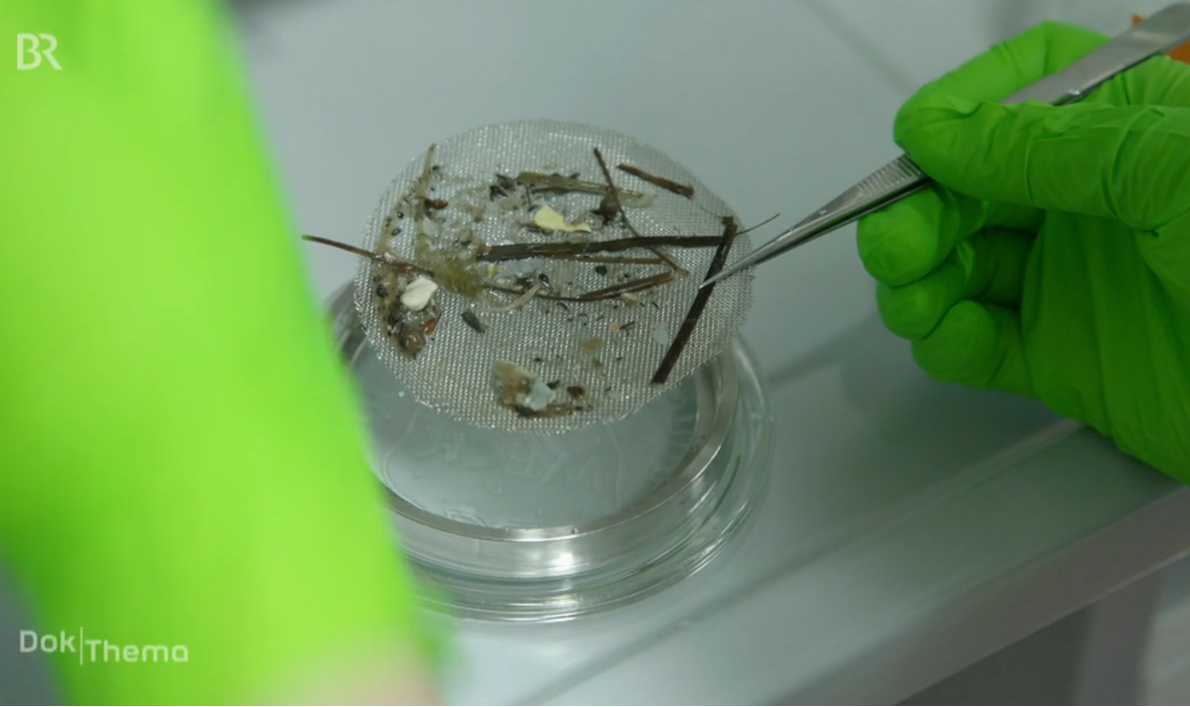
Erschienen am 01.02.2017 - © BR
BR: Is the state capitulating to the plastic flood
We Germans are proud to be pioneers in waste separation - and we tend to forget that we are also the European leaders in packaging waste. Why is it so difficult to get plastic waste under control? (In German)
Click here for the full version of the video.
Podcast Bayern 2 - Zündfunk: Plastic People - you gotta go
It is impossible to imagine modern lifestyle without plastic. Plastic is hip when it comes in the form of a new smartphone bag. Plastic is the future when it comes from the 3D printer. Plastic is pop when it is offered as an I-Tunes voucher for 50 euros at the supermarket checkout. Plastic is so omnipresent that it is hard to imagine living without it.
And yet more and more people are trying to do just that. The first plastic-free shops have opened in Vienna and Kiel. Their product range includes everything for daily needs, and it is completely unpackaged. In Berlin, a project for a packaging-free supermarket chain is starting. The response has been tremendous. The initiators have already raised 95,000 euros via crowdfunding. In the USA, there are already numerous supermarkets with so-called 'bulk shopping' areas where goods are offered without packaging.
What is new about this 'eco-scene' is that it is young and networked. Via social media like Twitter and Facebook, via blogs all over Europe. Behind it are not so much dropouts from the alternative scene, but start-ups with a business plan that not only see the welfare of the customers, but also tell retailers that they could earn a lot from a new, packaging-free trade, because products in bulk and without packaging and excessive marketing are often simply cheaper and allow higher profits.
When Frank Zappa sang "Plastic People, You Gotta Go!" in 1967, he probably didn't mean it, but it could become an anthem for a new plastic-free lifestyle.
Click here for the full version of the audio
